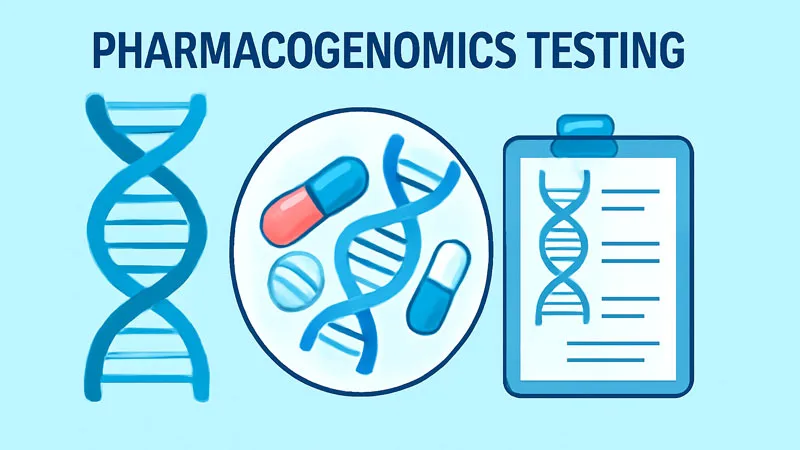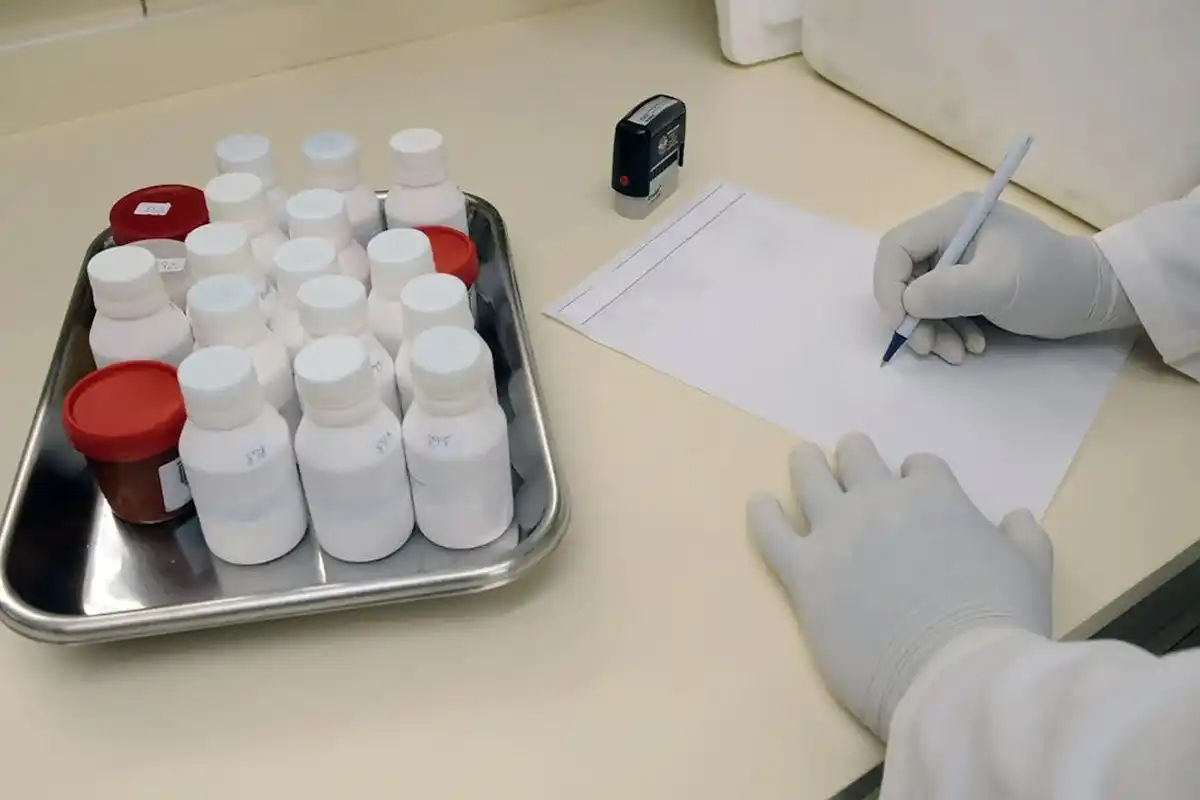Houston stands as the largest city in Texas and a prominent center for healthcare innovation. Among recent advancements capturing attention is pharmacogenomics testing (PGx testing). This diagnostic approach enables healthcare providers to tailor pharmacological treatments based on a patient’s genetic profile, thereby improving therapeutic outcomes and minimizing adverse drug reactions. As personalized medicine gains momentum, Houston clinics are uniquely positioned to assume a leadership role in the adoption of pharmacogenomics services.
This article examines the rationale for Houston clinics to integrate houston pharmacogenomics testing into their practices. By addressing how PGx testing can enhance patient safety, increase treatment efficacy, and benefit both providers and patients, we underscore the significant advantages that such companies and services can offer.
Table of Contents
Toggle1. Understanding Pharmacogenomics Testing
Before discussing the rationale for introducing this service in Houston clinics, it’s important to clarify what pharmacogenomics actually entails. Simply put, pharmacogenomics merges pharmacology the science of drugs with genomics, which focuses on genes and their functions. The aim? To understand how a person’s unique genetic makeup can impact their response to medication.
PGx testing examines specific genes that play a role in drug metabolism, effectiveness, and safety. By pinpointing genetic variations, healthcare providers can anticipate whether a patient will respond well to a certain drug, or if they might experience adverse effects. This knowledge enables a move towards more individualized treatment plans, ensuring each patient is prescribed the most appropriate medication at the optimal dose.
Given Houston’s notably diverse population, the push for personalized medicine is especially relevant. PGx testing allows clinics to account for the unique genetic differences across various ethnic groups, leading to more effective and safer treatments tailored to each individual’s genetic profile.

2. Why Houston Clinics Should Offer Pharmacogenomics Testing
2.1 Improve Treatment Outcomes
Actually, the previous version was pretty casual maybe a little too much, if you’re aiming for academic vibes. Let’s tighten it up and give it that scholarly edge:
One of the strongest arguments for Houston clinics to adopt pharmacogenomics testing is its demonstrated capacity to enhance patient outcomes. Traditionally, clinicians have relied on a standardized approach to prescribing medications, often with varying levels of effectiveness across individuals. Recent advances, however, highlight the significant influence of genetic factors on a patient’s response to pharmaceutical treatments.
Integrating pharmacogenomic testing allows healthcare providers in Houston to move beyond this trial-and-error model. By leveraging insights from a patient’s genetic profile, physicians can prescribe medications with greater precision and efficacy. This personalized method not only improves the likelihood of treatment success but also minimizes the risk of adverse reactions, ultimately contributing to more effective and safer patient care.
- Fewer trial-and-error prescriptions
- Faster achievement of therapeutic goals
- Reduced side effects
This precision in prescribing medications helps clinicians avoid prescribing ineffective treatments or those with harmful side effects, improving the overall patient experience and satisfaction.
2.2 Minimize Adverse Drug Reactions
Adverse drug reactions remain a substantial concern in clinical practice, frequently leading to hospitalization and, in severe cases, fatality. Pharmacogenomic (PGx) testing offers a promising solution for healthcare providers in Houston, enabling them to identify genetic variations that affect drug metabolism.
Some individuals possess genetic variants that either accelerate or slow the metabolism of specific medications, which can heighten the risk of side effects. By utilizing PGx testing, physicians are able to tailor medication dosages according to each patient’s genetic profile. This personalized approach not only lowers the risk of adverse drug reactions but also enhances overall patient safety.
2.3 Cost Efficiency for Healthcare Providers
Despite the seemingly steep upfront costs associated with pharmacogenomics testing, Houston clinics may actually achieve substantial savings over time. By minimizing the risk of ineffective prescriptions, reducing hospital readmissions triggered by adverse drug reactions, and avoiding preventable side effects, PGx testing can significantly cut healthcare expenditures. Furthermore, when patients are matched with effective treatments more swiftly, their overall time in the healthcare system decreases, which translates to additional cost reductions.
From a provider’s perspective, this approach can enhance patient satisfaction and reduce the frequency of follow-up appointments that typically result from unsuccessful therapies. The increased efficiency of PGx testing also streamlines medication management, improving workflow and productivity within busy clinical environments.
2.4 Appeal to a Broader Patient Base
Houston stands out as a remarkably diverse city, with its population representing a wide range of cultural backgrounds. This diversity naturally drives an increased demand for more individualized healthcare approaches. Pharmacogenomics testing, in particular, provides clinics with an opportunity to address these needs more effectively. By incorporating this service, clinics can differentiate themselves in a competitive market, offering patients more personalized treatment options. As awareness of the benefits of PGx testing continues to grow among healthcare consumers, clinics providing this service are likely to see gains not only in patient retention but also in referrals, further strengthening their position in the local healthcare landscape.
3. How Pharmacogenomics Testing Works
Pharmacogenomics testing, often abbreviated as PGx, represents a significant advancement in the personalization of healthcare by enabling treatment strategies tailored to an individual’s genetic profile. The procedure itself is typically not overly complex; generally, it involves collecting a biological sample commonly through a buccal swab or, less frequently, a blood draw. This sample is then analyzed to identify specific genetic variations that may influence a patient’s response to certain medications. The insights gained from this analysis can have substantial implications for clinical decision-making, allowing healthcare providers to select medications and dosages that are more likely to be effective and less likely to cause adverse effects. In essence, pharmacogenomics facilitates a more informed, precise approach to medical treatment, moving away from a one-size-fits-all methodology toward genuinely individualized care.

3.1 Collection of DNA Sample
The first step in pharmacogenomics testing is collecting a DNA sample. This is a non-invasive procedure that typically involves one of the following methods:
- Saliva sample: The most common method for PGx testing is the collection of a saliva sample. Patients are asked to spit into a special collection tube, and the saliva is sent to a laboratory for analysis. The collection process is simple, quick, and painless.
- Blood sample: In some cases, a blood draw may be necessary, especially for more complex or detailed genomic testing. This is typically done at a clinic or healthcare facility where trained staff can draw blood from the patient’s vein.
Once the sample is collected, it is sent to a laboratory where it undergoes genetic analysis. The process is simple for the patient, and it can be completed in just a few minutes.
3.2 DNA Analysis and Gene Testing
Once the sample reaches the laboratory, technicians begin analyzing the patient’s DNA for specific genetic markers that are known to influence how drugs are processed in the body. Pharmacogenomics testing primarily focuses on identifying variations in genes related to drug metabolism, drug efficacy, and the likelihood of experiencing side effects. Some of the most common genes that are tested include:
- Cytochrome P450 (CYP450) genes: These are a family of genes that play a crucial role in the metabolism of many drugs. Variations in these genes can affect how quickly or slowly the body metabolizes medications.
- Other drug-metabolizing genes: Apart from CYP450, other genes like UGT1A1, DPYD, and VKORC1 are tested for their role in how drugs are processed in the liver or interact with specific enzymes in the body.
The laboratory technicians identify any genetic variations or polymorphisms that could affect the metabolism of medications, which helps determine the most appropriate treatments for a patient.
3.3 Interpretation of Results
Once the analysis is complete, the results are provided to the healthcare provider, typically in the form of a detailed report. This report includes:
- Genetic variations: The report will outline any genetic variations identified in the patient’s DNA sample. These variations are categorized based on their impact on drug metabolism—whether they cause a faster, slower, or typical metabolism of specific medications.
- Drug response predictions: Based on the genetic variations, the report will predict how the patient will likely respond to certain medications. This can help doctors identify drugs that are more likely to be effective and safe for the patient.
- Dosage recommendations: In some cases, the results may suggest dosage adjustments. For example, if a patient is found to metabolize a drug more slowly, they may need a lower dose to avoid potential side effects. Conversely, those who metabolize drugs rapidly might require higher doses to achieve the desired therapeutic effect.
Healthcare providers then use this information to inform the patient’s treatment plan, ensuring that medications prescribed are optimized based on the patient’s genetic profile.
3.4 Personalized Treatment Plan
The final step is the integration of PGx testing results into the patient’s personalized treatment plan. With the genetic insights from pharmacogenomics testing, doctors can:
- Select the right medication: By understanding how the patient’s genetic makeup affects their response to drugs, healthcare providers can choose medications that are most likely to be effective and well-tolerated. This can be particularly valuable when treating chronic conditions such as depression, heart disease, or cancer, where different drugs might have varying levels of efficacy.
- Optimize dosage: Pharmacogenomics testing also helps providers adjust the dosage of medications based on the patient’s ability to metabolize specific drugs. This not only maximizes the therapeutic effect but also minimizes the risk of adverse reactions.
- Avoid drug interactions: Some genetic variations may increase the risk of harmful drug interactions. For example, certain genetic profiles might predispose a patient to severe reactions if they take two specific medications together. By understanding these risks, doctors can avoid these dangerous combinations and help patients navigate their treatment options more safely.
Additionally, because Houston has such a diverse population, pharmacogenomics testing is especially beneficial in identifying genetic differences across ethnic groups, enabling healthcare providers to offer truly personalized care to patients from various cultural backgrounds. The ability to tailor medication and dosage based on these factors not only improves outcomes but also enhances patient trust and satisfaction in their healthcare providers.
3.5 Ongoing Monitoring and Adjustments
The personalized treatment plan developed from PGx testing is not necessarily a one-time decision; it’s a dynamic process that requires ongoing monitoring and adjustments. As the patient undergoes treatment, their healthcare provider may need to:
- Monitor the effects: Track how the patient responds to the prescribed medications, adjusting treatment as necessary based on real-world feedback.
- Update the genetic profile: As new pharmacogenomic data becomes available and the patient’s health evolves, it may be necessary to update their genetic profile. This ensures that treatment remains as effective as possible.
- Change medications if necessary: If a patient’s initial treatment proves ineffective or if they experience adverse effects, their healthcare provider can refer back to the pharmacogenomics testing results to make informed decisions about alternative medications.
This ongoing, dynamic approach to treatment ensures that patients receive the best care possible, reducing the risk of complications and improving long-term health outcomes.
3.6 How PGx Testing Can Be Used for Different Medical Conditions
Pharmacogenomics testing is useful across a wide range of medical conditions. Some of the most common areas where PGx testing is particularly beneficial include:
Pain management: Opioid medications, commonly prescribed for pain management, can be metabolized differently by individuals with certain genetic markers. PGx testing helps ensure that pain management strategies are both effective and safe.ysis, result interpretation, and guidance for incorporating the data into treatment plans.
Mental health: Antidepressants and antipsychotic drugs often have varying effects depending on a person’s genetic makeup. PGx testing can help identify which medications will be most effective for treating conditions like depression, anxiety, and schizophrenia.
Cardiovascular diseases: Medications for heart disease, such as blood thinners or statins, can interact with certain genetic variants. PGx testing can help doctors prescribe the most appropriate medication to prevent strokes or heart attacks.
Cancer treatments: Chemotherapy and other cancer medications often have different levels of effectiveness based on genetic variations. Pharmacogenomics testing can guide oncologists in selecting the right drugs for cancer treatment, potentially improving survival rates.
4. The Role of houston pharmacogenomics testing Companies
4.1 Partnering with Leading PGx Testing Companies
For Houston clinics, collaborating with trusted pharmacogenomics testing companies is essential to ensure accurate testing and result interpretation. These companies typically offer:
- Clinical support: Expert guidance in understanding and implementing PGx results.
- Technology platforms: Easy-to-use systems that integrate pharmacogenomics data into a clinic’s existing workflow.
- Ongoing education: Resources for keeping healthcare providers updated on the latest advancements in PGx testing.
By partnering with the right PGx testing companies, clinics can provide high-quality, personalized care while ensuring their staff is properly trained to use pharmacogenomics data effectively.

4.2 Benefits for Patients
By offering pharmacogenomics services, Houston clinics provide patients with access to the latest in personalized medicine, improving their chances for better health outcomes. Patients will have peace of mind knowing that their medications are tailored specifically to their genetic profile, which can ultimately lead to more successful treatments and fewer side effects.
5. The Future of Pharmacogenomics in Houston Healthcare
As the landscape of healthcare rapidly shifts, pharmacogenomics stands poised to redefine the standards of patient care. Institutions in Houston, equipped with advanced resources and an expanding knowledge base in personalized medicine, occupy a unique position to spearhead the integration of PGx testing into clinical practice.
Early adoption of pharmacogenomic testing is likely to yield significant, long-term dividends for healthcare providers ranging from enhanced patient outcomes to more efficient allocation of resources and cost savings. Furthermore, as genomic technologies continue to evolve and become more accessible, the prospects for widespread implementation in Houston appear highly promising.
Conclusion
Pharmacogenomics testing stands at the forefront of personalized medicine, fundamentally reshaping how clinicians approach patient care. For Houston-based clinics, integrating PGx testing presents a significant opportunity not only to mitigate adverse drug reactions but also to boost the effectiveness of therapeutic interventions and tailor treatments to the genetic profiles of individual patients. As the momentum for personalized healthcare continues to accelerate, Houston clinics are particularly well-positioned to become leaders in the adoption of pharmacogenomics. By doing so, they can contribute to improved health outcomes and set a new standard for patient-centered medical practice in the region.
Final Thoughts
Pharmacogenomics testing represents far more than a novel addition to the suite of services offered by Houston clinics; it signifies a pivotal step toward advancing healthcare as a whole. The implementation of personalized medicine not only addresses the unique needs of individual patients but also positions these clinics at the forefront of medical innovation. In embracing these developments, Houston stands to play a significant role in shaping the trajectory of modern healthcare. The time is ripe for the city’s medical community to fully engage with this transformative approach.


